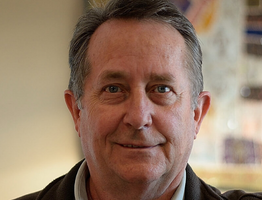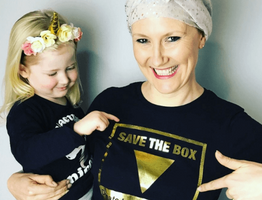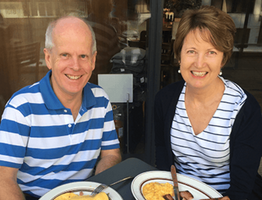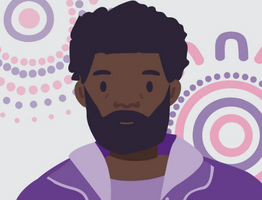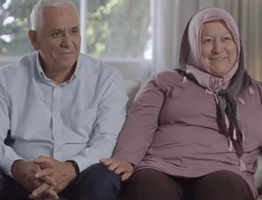My journey to diagnosis
"In 2018 I felt exhausted all year, but thought it was due to long-haul flights, family life, too much exercise or approaching menopause. I was diagnosed with low iron and prescribed a supplement.
My GP asked me to come in to adjust the dose, but she said it wasn’t urgent. I had coughed up a bit of blood on the previous weekend which I thought was related to an ongoing cold. I had also coughed up something black when I was away for work two weeks before. None of these ailments worried me at the time.
I was referred for a chest x-ray, and the radiologist directed me straight back to the GP who sent me for a CT scan that day. My GP also made an appointment with a respiratory specialist who ordered further tests, including a PET scan.
I wasn’t too concerned – I had travelled to Africa, Hong Kong and Hawaii and assumed I’d picked up a bug. I was joking about flight crew taking sick leave to avoid being on call! It was all quite jolly whilst I was waiting to have my bronchoscopy.
After the procedure, a nurse put brochures in my hand from Cancer Council and Lung Foundation; I just passed them to my husband. A few days later, I was back at the respiratory specialist who diagnosed me with lung cancer. I was diagnosed very quickly, over the course of about 10 days."
"Clinicians and patients should know that cold-like symptoms that don't go away could be cancer. Smokers or ex-smokers should ask for a scan."
- Georgia, lung cancer patient
My treatment experience
"I was referred to an oncologist who drew a diagram showing the two types of lung cancer and treatment pathways. She said, “Could you afford to pay $12,000 for two tablets?” I thought, “Why are you asking this? I have two kids!” They determined I had stage 3 non-small cell lung cancer with no mutations, which meant the tablets were not an option.
I was fortunate to be eligible for a clinical trial. I started chemotherapy in March and had several rounds of chemotherapy and immunotherapy to reduce the tumour size, then had a lobectomy in July. After surgery I had 30 radiation therapy sessions over about two months. I experienced reflux and damage to my vocal cords, otherwise it was a walk in the park.
The trial nurse was extremely caring and I could call and ask questions any time. When I have follow-up scans, they call me the same day with the results.
At this point, my doctor said, if you have $6,000 USD, you can send lung tissue to the USA for a genomic test. The results were a game changer, because I actually did have a genetic mutation that meant targeted therapy could be effective. I’m taking daily tablets that cause hideous side effects – but after 10 days, the cancer had reduced by 50%."
I’ll develop a resistance to targeted therapy over time, but my aim is to live with lung cancer like a chronic illness."
"Some people need to discuss their prognosis, but I didn’t want to hear a timeframe. Everyone’s cancer story is individual and I feel personalised support can change outcomes."
- Georgia, lung cancer patient
Georgia's story helped shape the new state-wide Cancer Plan
The NSW Cancer Plan sets out a coordinated and collaborative approach to cancer control with the aim of lessening the burden of cancer in NSW.
Learn more about the NSW Cancer Plan and keep informed on the latest updates by subscribing to our monthly e-News.
